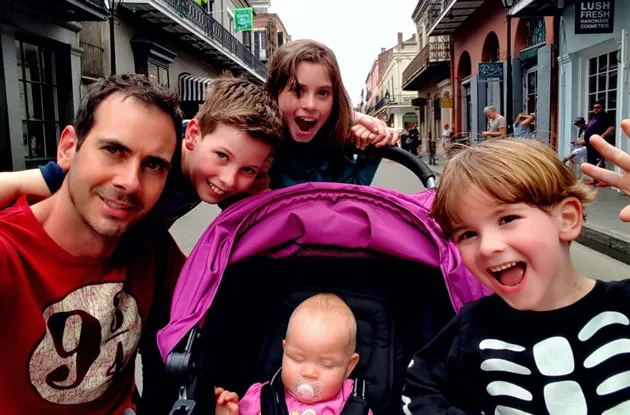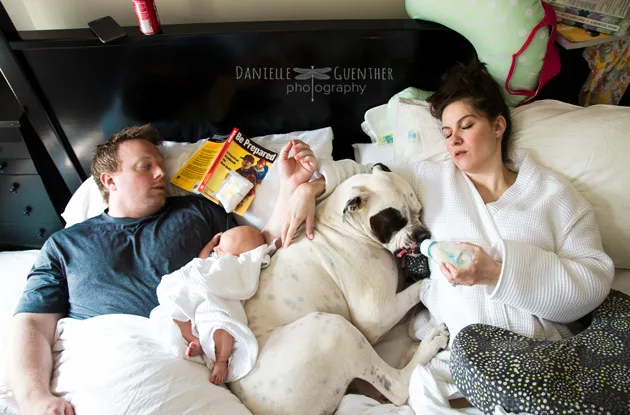 As a long-time editor in mainstream print media, I can heartily attest that it’s gotten more and more challenging over the years to sell magazines, to gain readers and advertisers, to hold those readers’ attention. Television shares similar problems, what with people’s diminished (byte-sized) attention spans and the pull of hyper-opinionated broadcasters.
As a long-time editor in mainstream print media, I can heartily attest that it’s gotten more and more challenging over the years to sell magazines, to gain readers and advertisers, to hold those readers’ attention. Television shares similar problems, what with people’s diminished (byte-sized) attention spans and the pull of hyper-opinionated broadcasters.
Headlines—and magazine covers—that create buzz are hard to come by. In recent weeks, there has been a spate of coverage on parenting topics intended to do just that, create buzz: mix things up a little, get commenters to share thoughts…to go viral. And indeed they did.
Beyond causing me to share at least a few of these articles on Facebook and Twitter and forward via email to various friends (so, indeed, I am part of that cycle), I got to thinking about how fair much of this coverage has been.
As a journalist, I am dismayed that the media must resort to controversial covers and headlines that force a “war.” I don’t often agree with misleading headlines, or ones that are purely sensational. But I must admit that they are effective: They get the conversation going, and often introduce a well-thought, heavily researched article to individuals who otherwise would not be exposed. They attract readers. As Jamie Lynn Grumet, who was featured on the much-hyped (and maligned) May 21, 2012 cover of Time, said: “’It did create a media craze and [it was meant] to get the dialogue… talking.”
 The unfortunate fact, however, is that the ensuing conversation is typically focused on the wrong things. Rather than getting people to talk about attachment parenting in a real way, or to discuss the science behind the benefits of breastfeeding, the cover of Time stirred the pot in ways that had people picking sides (attachment parenting vs. this vs. that; your way vs. my way; Europeans vs. Americans), lashing out at the mother pictured in ways I won’t even mention here, and wondering, as the headline mused, “Am I mom enough?” (As if we parents don’t have enough self-inflicted guilt and judgment and worry already—we’re susceptible targets.)
The unfortunate fact, however, is that the ensuing conversation is typically focused on the wrong things. Rather than getting people to talk about attachment parenting in a real way, or to discuss the science behind the benefits of breastfeeding, the cover of Time stirred the pot in ways that had people picking sides (attachment parenting vs. this vs. that; your way vs. my way; Europeans vs. Americans), lashing out at the mother pictured in ways I won’t even mention here, and wondering, as the headline mused, “Am I mom enough?” (As if we parents don’t have enough self-inflicted guilt and judgment and worry already—we’re susceptible targets.)
As Lisa Belkin so concisely put it: “The breastfeeding conversation is not titillating. The Time cover is.”
Like Kate Pickert’s Time article from that issue, which was nuanced and more fair than the cover would lead one to believe, a piece entitled “Why Women Still Can’t Have It All,” by Anne-Marie Slaughter, got a ton of attention provoked greatly by the headline plastered across the cover of The Atlantic.
My head was spinning when I read this thoughtful, intelligent—and emotional—cover story. I was thinking about big things (feminism, cultural biases, the nature of compromise) and personal ones (my own struggle to find work-life balance, how my mother made sacrifices for me growing up). Then, my interest piqued, I began reading others’ reactions.
And my head wasn’t just spinning, it was muddied.
What I Wanted the Discussion to Be About
Two of the most thoughtful—and varied—responses to The Atlantic article came from Rebecca Traister on Salon and Rachel over at AutoStraddle. With each response I read I clicked on internal links to discover an even more diverse array of opinions. Most of them, though, left me wanting or angry. The point I felt so many missed? That writing about parenting is, by virtue of the topic, emotional. I began reading Lori Gottlieb’s loaded companion piece in The Atlantic with admiration and head nods. I ended up, again, feeling edgy. I agree with her supposition that “There’s No Such Thing as ‘Having It All’—and There Never Will Be”—and that all of life’s a compromise.
But I wish the conversation weren’t about whether or not we can have it all, but why many of us believe (sort of) that we can…and how to cope with that. I considered weighing in with my own opinion on the matter at the time. But while reading some of the other posts, I wondered if the writers would have blogger’s remorse the next day, or in a year. And as such I was reluctant to throw my opinion out there. Because of necessity it is emotional (therefore not wholly rational) and contingent on where I am in my life. I am certain that if I encountered this article just a few years ago before having had my son, there are nuances I’d miss. Or if this were to have come up further back when I was a striving, single career person working at Vogue, my perspective would have colored my reaction. But all my potential reactions would have been valid, and true to me—to a me who is always evolving.
We have choices in life, sometimes limited ones, sometimes so many we feel overwhelmed. Yes, it is feminists and so many in history before us who led us to this place where we, as mothers, have more choices than ever (flex schedules, later motherhood, sharing responsibilities with our partners, etc.). And yes, we KNOW we can’t have it all at once. But whether it’s the media or feminism or our parents or our own overactive imaginations that sold us a bill of goods—that we can “have it all”—really doesn’t matter. What matters is that deep down—emotionally—many of us WANT to believe that we can. That is why I bristled at reading Gottlieb’s response—despite its raw honesty, it seemed mean-spirited, blind to the fact that many of Slaughter’s observations are personal. Everyone’s feelings about the discussion are visceral. And they should be.
Whether I like it or not, that one sensational headline—overstated, perhaps missing the point—led me to a series of interesting conversations and revelations.
Why I Haven’t Given Up Hope on Mainstream Media
Because ideas matter. Because good reporting is still important. Because, after all is said and done, media is still a business, and we need to keep perspective. Because conversation is good. As difficult as it is to draw and engage readers, I relish being part of the media because, when we can spark discussion and present something that resonates, it’s magic. Blogging presents more opportunities to converse and to hear others’ opinions, too…
I look forward to seeing what Katie Couric does with her imminent new self-titled TV show, Katie, which will premier in September. There will no doubt be a lot of the fluffier lifestyle stuff we all love to indulge in (why shouldn’t there be?—it’s entertainment, after all!), but with her credentials and her perspective, I anticipate some very thoughtful and interesting topics that will make us think. (Get your free tickets by mentioning NYMetroParents here.)
I will also continue to read pieces in a variety of media outlets so that I can be assured to be exposed to different viewpoints—and will continue to share links on them via social media, especially when the headlines are NOT smarmy and misleading. A few of my recent faves that I’ve passed along:
Why Does Everyone Pretend There’s a Spanking Debate? via Lisa Belkin @HuffPo (This is a perfectly articulated post about another recent hot topic brought on by how mainstream media created a “debate” where none should exist—a must-read.)
Adultescence in America via Psychology Today
Redefining Success and Celebrating the Ordinary via The New York Times
A Lasting Legacy: How Organ Donation Affects Your Family via NYMetroParents
What do you think?
What headlines have rubbed you the wrong way? Do you think a sensational cover is justified because it draws readers to a high-quality article inside? What articles might I have missed because they weren’t presented in a more “marketable” way? Please share!





















